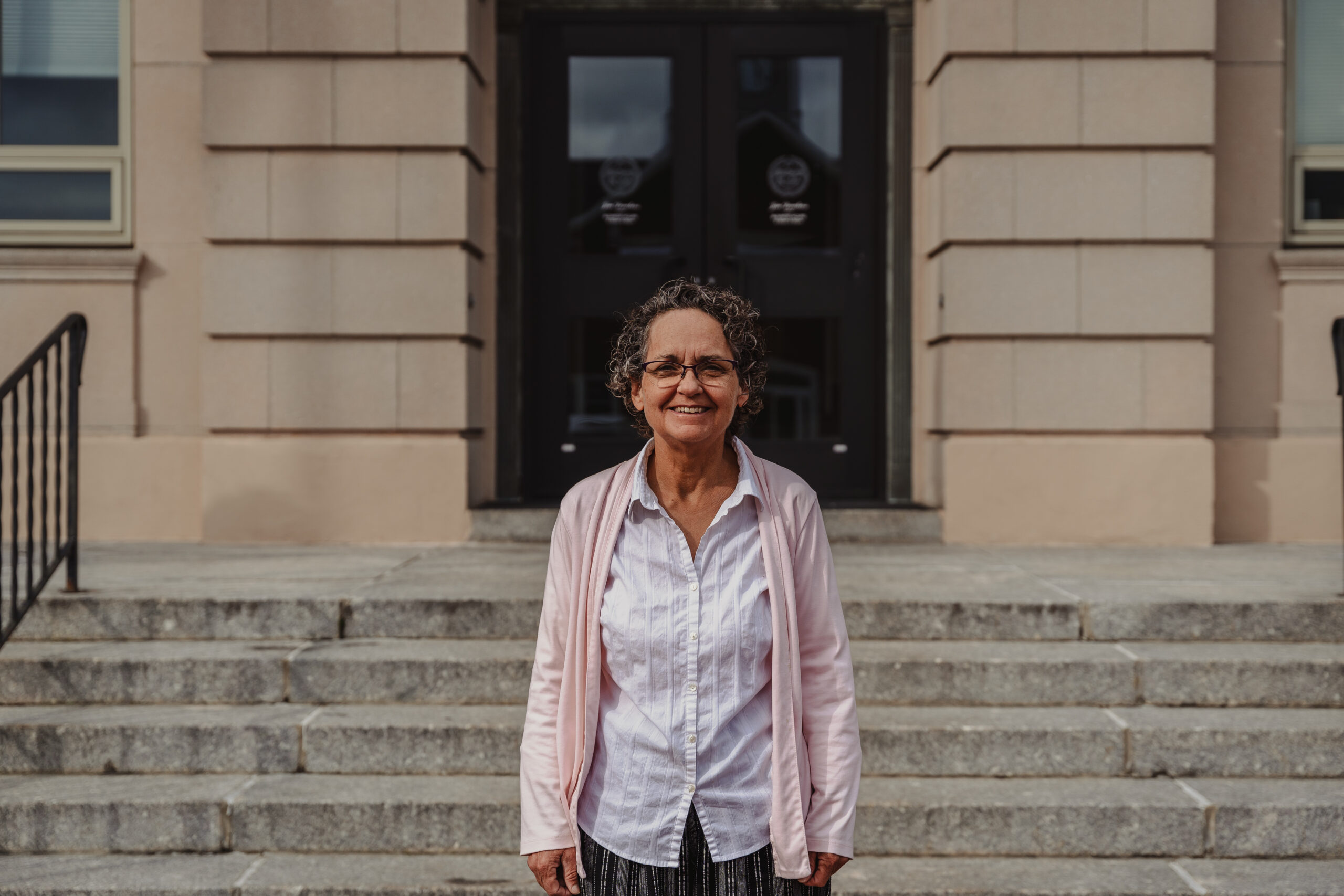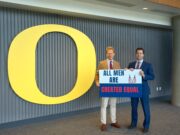New London, NH — Beth Scaer spoke out against male athletes in girls’ high school sports at a local school board meeting—but the board silenced her just seconds into her remarks and threatened to have the police remove her, claiming that she had violated an unwritten policy against “derogatory comments” for merely referring to a biologically male athlete who competes on the girls’ soccer team as a “tall boy.”
Now, Scaer is fighting back against this unconstitutional censorship.
Attorneys from the Institute for Free Speech, along with local counsel Roy S. McCandless, filed a federal lawsuit today in the U.S. District Court for the District of New Hampshire on behalf of Scaer. The suit challenges the Kearsarge Regional School Board’s enforcement of the unwritten “no derogatory comments” rule used to censor public discussion of controversial topics.
At an August 2024 board meeting focused on transgender athletics, Scaer attempted to speak against allowing biological males in girls’ sports. Board Chair Alison Mastin cut Scaer off within seconds, declared her speaking time forfeited, and warned that police would intervene if she continued speaking—all because Scaer referred to a biological male who competed on the girls’ soccer team as a “tall boy.”
Meanwhile, other speakers were permitted their full three minutes to express support for the transgender athlete by name. One attendee even displayed a sign with the athlete’s name, which the board allowed.
The lawsuit contends that the board’s actions are unconstitutional viewpoint discrimination in violation of the First Amendment. The suit also argues that the unwritten “no derogatory comments” rule is unreasonable, vague, overbroad, and selectively enforced against disfavored viewpoints.
“School boards cannot invent speech rules on the fly to silence citizens expressing views they dislike,” said Institute for Free Speech Attorney Nathan Ristuccia. “This unwritten rule about ‘derogatory’ comments gives the board unchecked power to determine which speech is acceptable and which isn’t—precisely what the First Amendment prohibits.”
The Kearsarge incident occurred during heated debate over New Hampshire’s Fairness in Women’s Sports Act (FWSA), a law reserving girls’ sports for biological females. The district previously voted to follow the FWSA. However, after silencing Scaer, Kearsarge reversed course, defying state law to allow the male athlete to compete on the girls’ soccer team.
“Everyone deserves an equal opportunity to address their elected officials without fear of censorship,” explained Scaer. “This case is about ensuring that all citizens—regardless of their viewpoint—can participate in public meetings and comment on issues that are important to the community.”
The lawsuit seeks to enjoin enforcement of the “no derogatory comments” rule, prevent discrimination against speech based on viewpoint, and establish that Scaer’s First Amendment rights were violated.
The suit aims to ensure that Scaer—and others—can speak freely at future board meetings without fear of censorship, retaliation, or removal simply for expressing controversial or dissenting views.
To read the complaint in Scaer v. Mastin, et al., click here. To visit our case page, which includes photos of the client for media use, click here.
About the Institute for Free Speech
The Institute for Free Speech promotes and defends the political speech rights to freely speak, assemble, publish, and petition the government guaranteed by the First Amendment.














